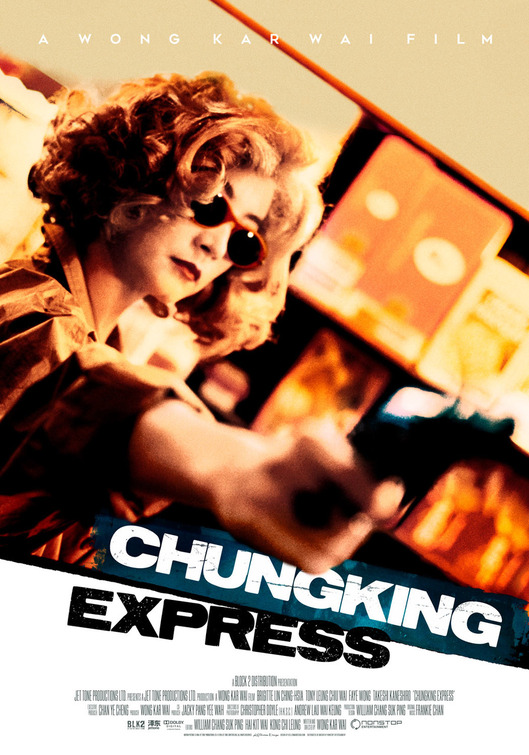

Some people say the film is about this or that character, but I say, ‘No, this film is about Hong Kong, it is my love letter to Hong Kong.’ This is the area that I know. To me Chungking Express, it’s like the night and day of Hong Kong. I know this area so well, so I shot half the film there.
#Chungking express plot movie#
It used to be very different it was apartments for movie stars in the 1950s, but later on it became like guesthouses. It’s a huge mansion with hundreds of hostels, so people from different parts of the world, especially backpackers, go there. For those of you who’ve never been to Hong Kong, next time you should go there, because I think it’s a landmark. Basically, we shot the whole film in just two locations, one in Chungking Mansions.

Relatively, it was the shortest production time of all my films. Why? Well, we shot the film in six weeks. But for Chungking Express, it was the opposite. So, there is a lot happening during the production. “Certain films, the process is really difficult: the weather is not right, the cast is not right, the place is not right. Hawaii International Film Festival’s longtime director of programming, Anderson Le, affably overcame some introductory ribbing by Wong (“Anderson, why do you ask me that question! It was 25 years ago, and after 25 years, it’s still that same question!” he jokingly responded to the first, somewhat innocuous query), and coaxed out some remarkable storytelling and reminiscences from the director.

The night before my interview with him, Wong Kar-wai addressed a sold-out crowd assembled for a screening of one of his greatest films, 1994’s Chungking Express. Chungking Express demonstrates many key elements of the French New Wave in a way that might puzzle the (western) viewer but not so bewildering as to deter from the films many charms.In Directors, Festivals & Events, InterviewsĬhungking express, Hawaii International Film Festival, Wong Kar Wai Wong Kar-Wai’s films have been compared to that of film makers of the French New Wave, possibly due to his experimental camera techniques, a self-conscious decision to avoid typical plot structure, and total lack of a finalised script before commencing the film shoot. The characters wisely narrate their own stories as though recounting events of the past and the audience is in a constant state of deja vu.

Apart from the protagonist’s encounters with the all-night snack bar Midnight Express, the two stories are independent. The plot does not follow the classic 'three act structure’ as do most western films, instead the two parallel tales seem like fragments of a larger story. Although dealing with themes of loss and longing, the film is reasonably light-hearted and portrays the quirky monologue of two people in the midst of a personal crisis.įrom a western perspective, the narrative structure of the film is unfamiliar and somewhat disorienting. Set inside the infamous and somewhat sleazy Chungking Mansions, the film follows He Qiwu who is striving to heal after a failed relationship and unnamed ‘Cop-663’ who is equally damaged in a matching situation. It is the head-to-tail accounts of two policemen lost in a world of heartbreak induced loneliness. Chungking Express (1994) is the third feature film from Hong Kong director Wong Kar-Wai.


 0 kommentar(er)
0 kommentar(er)
